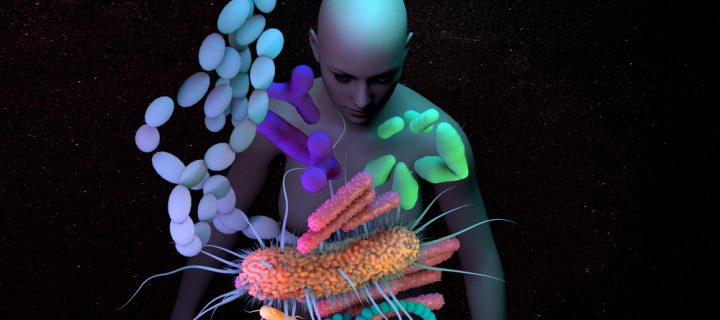You’ve likely heard before that our bodies are home to scads of tiny, invisible microbes. Like every ecosystem, we need them to function properly, and we make a welcoming home.
In fact, our body is kind of like a planet- and the microbes are our equivalent of insects. On Earth, it’s estimated that insects have the largest biomass, collectively, of all land-dwelling animals. Similarly, the microbes in and on our bodies are tiny but come to a large count. They actually outnumber human cells 10 to 1.
What happens when we don’t have the right balance in our biome? Just like a rainforest without its cover, our system can go out of whack. Without the right microbes living in our gut, our immune system can take a dive, our digestion can be off, and some studies even say our mood and behavior can be affected, among other things.
Some specialists think the microbiome may be as important to our wellbeing as the human genome.
The only difference is, it’s changeable.
And so, private companies are now cashing in on this fact. Some companies are now offering clients the chance to have their microbiome analyzed.
But is it worth it?
Companies like uBiome out of San Fransisco allow customers to pay from $89 to $399 USD to have samples of microbes from various parts of their body analyzed. The test looks at microbes from a person’s gut, mouth, nose, genitals and skin and can provide feedback that reveals who is keeping house in and on your body.
Why do it? The basic idea is that, through the analysis, you could learn about the presence or absence of certain microbes in your system. With this knowledge, as a client, you could potentially try to change your diet or your vitamin intake, or maybe you could alter something like the type of soap you use and how much, in order to re-balance your microbiome. If things appear to be out of whack, maybe you could fix them.
The analysis provided by uBiome says it hopes to provide “useful and actionable data”, by sending the user links to their website where clients can compare their results with those of others who have been part of the company’s sample. Participants can also be connected with relevant studies that relate to their personal profile.
So, it kind of sounds revolutionary. The only drawback is that, according to reviews like this one on discovermagazine.com, the information you get back might not be all that useful, once you’ve done the analysis.
As Sarah Scoles points out in her article on the site, many of the bacteria listed in her results didn’t even have entries, because science hasn’t figured out their use to humans, as of yet.
So, not a very useful service for the consumer. Maybe the results could be valuable a few years down the road. The only thins is, as Scoles points out, that by that time, your microbiome will be different-calling for another test, all over again, for any applicable results.
Who does benefit from these tests, then? The results are useful to the companies who generate them. With the client’s permission, the results of an analysis can be shared, sold and studied by other scientific researchers, who are eager to get their hands on your microbial big data.
As Scoles points out, “Given that, it would be more appropriate for uBiome to pay you to swab your toilet paper than for you to give them $90 so you can learn what they can’t yet tell you.”
That’s not to say that having your microbiome tested is always a complete waste of time. By paying a company to analyze things for you, it’s true that you are actually participating in the whole project of mapping the many facets of the human microbiome and helping to fund further research.
And this counts- the collective findings of scientists are sure to have a large impact on the future health of humans, some day.
And so, there is a purpose. You are contributing to science- and perhaps satisfying your curiosity at the same time. Sound like a good idea for $400? It all depends on your point of view.
Photo Credit: Design_Cells/Shutterstock












